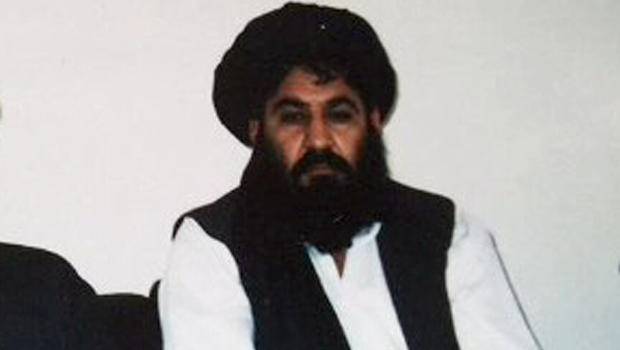KABUL: Taliban has began discussing replacement of Mullah Akhtar Mansoor, insiders say — a choice that could spark furious infighting and signal whether there's any chance of a negotiated peace in Afghanistan, American media in reports from Kabul and other sources said.
Two senior members of the Afghan Taliban told NBC News that they'd received the burned remains of Mullah Akhtar Mansoor, who was killed Saturday in a U.S. airstrike in southwest Pakistan — the first time since the beginning of the Afghan war that the United States had directly targeted a Taliban leader.
The Taliban sources said they were still trying to decide whether to hold a public funeral.
The peace talks nominally began in February 2015, when the Afghan government announced it would meet with Taliban leaders. Three other countries — Pakistan, China and the United States — are also involved. But the process has repeatedly broken down, with little to show after more than a year of work.
Now the Taliban is facing its second leadership crisis since last July — when the group revealed that its prior leader, Mullah Omar, had died two years earlier in 2013.
After taking over for Omar, Mansoor consolidated power and quelled dissension by bringing many of his predecessor's lieutenants into his fold. But several commanders formed a breakaway faction, causing a bitter internal feud.
Replacing Mansoor could take week for the Taliban's shura, or ruling council. That leaves open the possibility that more "reconcilable" blocs within the Taliban could hold more sway, Taliban sources close to shura members told NBC News.
But a more rigidly combative wing may just as easily take power, eliminating any hope for a ceasefire.
Four names have surfaced as top contenders: Sirajuddin Haqqani, leader of the Taliban's most fierce and deadly fighting network; Mullah Mohammad Yaqoob, son of former Taliban leader Mullah Omar; Mullah Abdul Qayyum Zakir, a former Guantanamo Bay detainee who commands the group in southern Helmand province; and Mullah Sherin, according to the Taliban sources.
"A lot of these guys are more radical than Mansoor was," said Thomas Johnson, a professor at the Naval Postgraduate School who specializes in Afghanistan. His conclusion: "The Mansoor hit might have some short-term impact, but over the long term it's not going to make any difference at all."
Bill Roggio, editor of the Long War Journal and senior fellow at The Foundation for Defense of Democracies, said the same thing. ""None of those guys want to negotiate. Fifteen years on, the Taliban controls more territory than they ever have after the U.S. invasion. They're winning. They're beating Afghan forces. What's the incentive for them to negotiate?"
He compared Mansoor's death to the retirement of an American general.
"These guys don't retire," Roggio said. "Their retirement is death. They say in their propaganda their goal is to die fighting, and they do. And then they're replaced."
Barnett Rubin, associate director of the NYU Center on International Cooperation's Afghanistan Pakistan Regional Program, also said he didn't expect Mansoor's death to have much of an impact.
He pointed out that the party most affected will be Pakistan, not only because Mansoor was in that country when he was killed, but also because it appears that he had been using a Pakistani passport to travel to Iran.
Pakistani and U.S. officials said Mansoor used the passport and a Pakistani national identity card with the name Muhammad Wali.
Pakistani security authorities started investigations into the passport issued to Muhammad Wali, whom Pakistani and US officials said was leader of the Afghan Taliban, Mullah Akhtar Mohammad Mansoor. Pakistani Government
A Taliban commander confirmed to NBC News that the cards were Mansoor's. Asked why Mansoor changed his name on the documents, the commander replied, "Do you think he would have been issued passport and identify card had he disclosed his identity?"
Another Taliban member said the group's intelligence wing was trying to figure out how Mansoor was targeted soon after he entered Pakistan from Iran, where he'd attended meetings with Iranian officials. The Taliban member claimed Iran had been spying on Mansoor.
The discovery of the identification cards will likely put more pressure on Pakistan to player a stronger role in bringing the Taliban into peace talks, Rubin said.
But, at this point, the Taliban has no more reason to show up.
"In my opinion, no one should have the illusion that this will lead to significant change in the war that will enable us to take our troops home faster," Rubin said.






